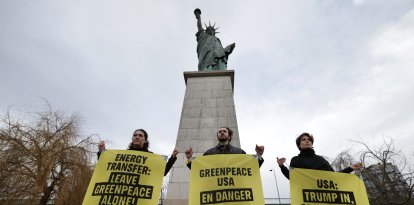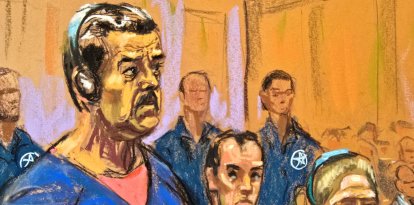Chicago: First cash reparations program for African Americans sued for racial discrimination
The city of Evanston, Illinois, was the first to approve a policy to distribute up to $25,000 per household to descendants of the black community.

(F
Evanston, the city in the suburbs of Chicago (Illinois) that approved and implemented the first economic reparations plan for African Americans, is now facing a lawsuit for racial discrimination. At the center of this legal dispute is the City Council's rule, which provides for monetary disbursements of up to $25,000 for members of the city's Black community.
Evanston made history by becoming the first place in the country to approve a reparations program in 2019. This initiative attracted the attention of many other progressive administrations. which held up the Evanston model as an example to follow.
The City Council of this Chicago suburb voted 8-1 to distribute $400,000 to eligible Black households. Each eligible household will receive $25,000 for home repairs or property down payments.
The program is funded by donations and revenue from a 3% tax on the sale of recreational marijuana. The city has committed to distributing $10 million over 10 years. Eligible residents must have lived in or be a direct descendant of a Black person who lived in Evanston between 1919 and 1969 and experienced housing discrimination due to city ordinances, policies or practices.
Now, six non-African American descendants of Evanston residents during that period have taken the city's policy to court. They accuse the program of being "presumptively unconstitutional" due to its racial requirement, as reported by Fox News.
Aid based on race
The lawsuit that this group of descendants has filed primarily argues that Evanston's policy is unconstitutional. They claim that a law cannot be based on race and exclude individuals on racial grounds
According to the claim, "The defendant [Evanston], acting under color of law, is depriving Plaintiffs of their right to equal protection by knowingly and intentionally discriminating against Plaintiffs on the basis of race. Defendant's use of race as an eligibility requirement injures plaintiffs because it is a barrier that prevents plaintiffs from participating in and obtaining payments under the program on an equal basis with persons who are able to satisfy defendant's race requirement. Plaintiffs are also injured by defendant's use of race as an eligibility requirement because, but for the requirement, each of Plaintiffs would be eligible and in line to receive $25,000 under the program."
Evanston's policy is based almost exclusively on race to distribute aid. It does not require any other conditions to be met, even though it is possible that an African-American resident of this city could benefit from the program even though their relatives did not experience housing discrimination during this period specified by the law.

























